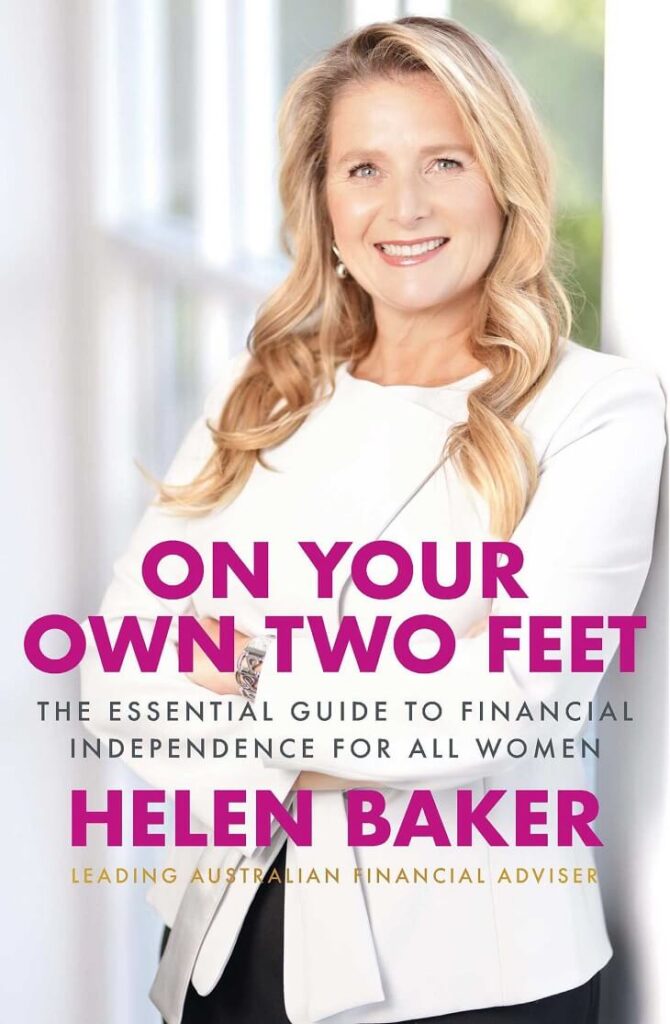Financial adviser Helen Baker is on a mission to empower older Australians to achieve financial freedom in retirement – or get as close as possible. She explains how to understand your true future living costs.
•••
How much will you really need to live on? Clients regularly estimate $50,000 to $70,000 and then find it’s more. Here’s why. With more time on your hands and more opportunities to do jobs around the house, or take a trip, or go to the movies, socialise, take the grandkids out, etc, it’s likely you will spend more. Here’s an exercise for you.
Take a week or two off work and see what you spend. List everything, including your fixed bills – rates, electricity, phone; variables but necessities such as groceries and petrol, and fun. Did you get stuck into a project you’ve been meaning to do? Cost it. Eat out. Great, but include the cost. Take off for a few days? Excellent – include it. This is a snapshot of what life can be like in retirement when you don’t have to ask permission for time off work or think about annual leave. When we actually track our cash flow, we see reality.
Big purchases that are indirectly involved with your retirement dreams are often overlooked. For example, you planned to go caravanning but the caravan you bought is bigger than you thought and you need another vehicle with more ‘grunt’ to tow it. You might consider buying big-ticket items before you retire (like the motorhome for adventure travelling) to ensure you aren’t taking out big chunks in retirement. Likewise, if your seaside holiday rental is going to be your retirement home once some updates are made to the bathroom and kitchen for example, it could be advantageous to make those improvements while the property is still on the letting market, as a tax deduction.

Where will I live?
Perhaps you’re thinking of downsizing. The family home seems too big with the kids gone – but have they actually left? You may well be feeling the impact of the boomerang generation, with adult kids returning home with their kids in tow!
Your place to call home for the years ahead is something to think about ahead of retirement. Do you look now at moving into a house or a unit or a ‘lifestyle resort for over 50s’? There are trade-offs with these choices. Having people around and feeling ‘safe’ versus having people around who are noisy or don’t give you privacy is one consideration.
Property maintenance is a big one for houses. So is security.
The body corporate fees that come with units and residential villages also concern me as they can rise and rise and you have no choice but to pay, placing more pressure on your finances. I’ve spoken of control and certainty before: this is out of your control!
Do you stay in an area that’s familiar, close to family and friends, or pursue that hankering to live by the sea (or the bush)? Plenty of Australians ‘escape’. This is a tough personal choice.
It can be a wrench to leave the family home. The Australian government has sought to make it a little easier since July 2018, introducing its downsizing superannuation initiative. Proceeds from the sale of the family home can be used to make superannuation contributions of up to $300,000 if you are single, aged 55 or over. Curiously, you don’t actually have to be moving into a smaller dwelling to be eligible. In its first year, just over 4000 Australians took up the initiative, sinking a collective $1 billion into their superannuation funds. Its appropriateness for you may be something to talk about with your financial adviser.
Harnessing your ‘super’ powers
Ageing has its benefits. Being 60-plus, for example, brings with it some super advantages. I’m talking superannuation, of course! Simply put, there are a lot of smart tax-effective strategies for you at this age. The earlier you can get control and take advantage of them, the better off you should be. Savings on tax, fees and costs can stretch your money further.
The transition to retirement (TTR) strategy has changed in recent years, in terms of age of access and tax. It may be a great way to stretch your money by legitimately reducing your tax and taking home the same net pay. You may also be able to reduce some of the tax on the earnings and growth in an allocated pension fund to 0 per cent depending on age and legislation at the time.
If you are married or partnered, and both have superannuation, money can be moved around to each other, in some circumstances.
This may allow one of you access to superannuation earlier or allow someone to get an Age Pension who wasn’t getting it before.

More ways to make those extra dollars add up in your 50s, 60s and 70s
I’ve spoken a lot about superannuation. In reality, all five financial foundations need to be in place to ensure nothing comes crashing down. Let’s work through them all, highlighting issues you may want to consider for this stage of life.
Emergency fund. How much do you need? Think about existing debt levels, your health, your current job security. How’s your sleep at night?
Spending and investment plan. With school fees and other children’s expenses behind you, do you have more funds freely available? Could you invest more, and what in? If you are part of a couple, could you take advantage of some superannuation strategies?
Personal insurances. Are the levels of cover relevant still? Do they need reducing? Insurances can be very expensive in this age bracket but still may be a necessity. I have seen women in their 60s still carrying mortgage debt, or really dependent on these remaining working years’ income to build their superannuation.
You may need to have an operation that means quite a bit of time off work (e.g., a knee replacement). Will sick leave be enough, or will you need to draw on income protection? Most insurances cease at age 65.
While you may have reached that time of life when some personal insurances are less relevant for you, what about your adult kids? Are they appropriately covered? Have the conversation. I’d even go so far as to say consider paying for some of their insurances if they’re quibbling about the cost. Why? Because the premium is likely to be much less than any hand-outs they may come seeking if their life goes pear-shaped.
Superannuation. As I said earlier, there is a tendency to go conservative with your investments at this point in life, but you may still have 15 years (or more) to build, and likely even longer for the life of those investments. The right mix of defensive and growth may change through the decades. How would you feel if you were two years out from retirement and the market crashed? Could you weather the storm until it bounced back or would all your plans change? A good idea is to plan to not need an Age Pension just in case legislation changes. Can you make it for a long enough time without it?
Estate planning. Check that it’s still relevant and that your power of attorney and enduring power of attorney are in place.

This is an extract from On Your Own Two Feet: The Essential Guide to Financial Independence for all Women, written by Helen Baker and published by Ventura Press.
Helen Baker is a qualified, practising and licensed financial adviser and founder of On Your Own Two Feet, an Australia-wide service dedicated to empowering women to gain and retain their financial freedom. She is among the 1 per cent of financial planners who hold a master’s degree in the field. Proceeds from book sales are donated to charities supporting disadvantaged women and children. Find out more at www.onyourowntwofeet.com.au
Do you feel you are in control of your own retirement or retirement plan? Is it that much harder being a woman? Why not share your views in the comments section below?
Also read: Explained – How your retirement payments are taxed and what is exempt

